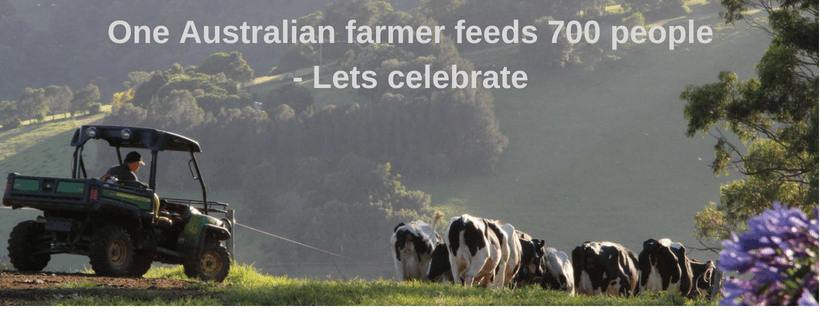My recent post Advocacy at its worst – when agriculture chooses the divide and conquer route to market created significant discussion.
Problems are challenges to be solved and when we have the right solution we need to advocate at the highest level to ensure those solutions are put in place.
And we have some very wicked problems in Australian agriculture including human rights and modern slavery issues we should have addressed a long time ago.
The more modern and sophisticated the whole AgriFood sector becomes, the less room there is likely to be for unethical operators, particularly in labour hire, and the mistreatment of transient workers. The Committee is strongly of the view that every possible means should be brought to bear to stamp out these ugly practices. Source
 Photo source The Weekly Times
Photo source The Weekly Times
What does real advocacy look like – three very courageous women in Session 11 at the recent ABARES conference showed Australian agriculture industry leaders exactly what it looks like.
“This is real issue for industry bodies and it goes to industry leadership we can’t address our workforce labour issues until we deal with the elephant in the room… and stop sweeping our problems under the rug” Professor Joanna Howe
Professor Joanna Howe answers the question “What is the problem”
The problem is, when there’s so many people doing the wrong thing, and when there’s a reliance on undocumented workers and dodgy contractors, which are unregulated, and when the industry hasn’t shown the leadership on these issues, it becomes very, very difficult. The main thing that the industry has fought for, is an ag visa and for more expanded migration pathways without recognizing that they’ve lost their social license. That there are real issues with the industry saying, give us more visas, give us more overseas workers, when investigation, after investigation is showing problems. I think that there is a need for the industry bodies to step up and to own this issue and to face the difficult solutions that will result in structural change.
There are growers that need to go out of business because their business model is based on exploiting workers. There are other growers that can then pick up the slack and expand their operations because they have the economies of scale and the competency, but it’s not just about large business. For example, in the Northern territory, a small mango farmer that we knew, that we interviewed, he brought in six workers on the seasonal worker program. It was more expensive for him to do so, but he was running a very sharp operation and making profits, even though that program is quite expensive, but he knew that it was a better program for him to use than the backpacker program, which is a revolving door for undocumented migrants. It’s not just about the small farms, bad, big farms compliant, that’s not what it is, and there’s not what I’m saying, but the industry needs to recognize that there’s some very hard decisions ahead and just arguing for an agriculture visa without acknowledging the extent of the problem or being open to doing real hard work about it.
For example, industry created the Fair Farms initiative through Growcom in Queensland. Good program, but if I’ll be honest with you, it doesn’t involve … I’m just being honest, it doesn’t involve unions. Yes, it’s got involvement from the Fair Work ombudsman, but the amount, they have very few inspectors across an entire country. We know that there’s problems across this workforce and while unions cause a lot of trouble for farmers, they are a necessary evil. If we’re going to put it that way from the growers perspective. In that, they do monitor standards. If we need to clean up the industry, they’re a part of this and they’re going to be involved. We saw the impact that they can have and the piece rates case. The fair farms program should be tripartite. Otherwise, it’s just the good growers who sign up to that accreditation program and who use it. It does nothing to affect the bad growers who are doing the wrong thing and getting away with it” Watch the video here
What does best practice look like
We ALL have a role to play – everyone in the supply chain from farmers to retailers to consumers can ask themselves what role can I play in stepping up to say no to modern slavery in this country
#creatingabetterworldtogether

















 Very topical with the NSW Government recently taking out this one page infographic the Telegraph. My previous blog on this issue can be found
Very topical with the NSW Government recently taking out this one page infographic the Telegraph. My previous blog on this issue can be found 